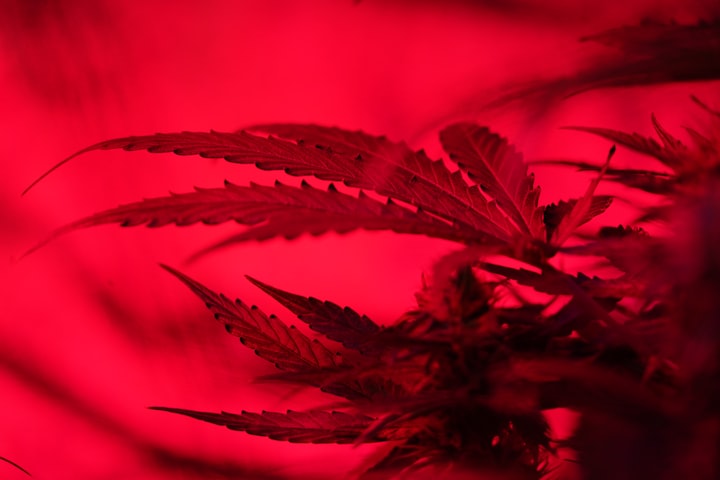I’m Harshing the Vibe: Debunking the Myth of “California Sober”
While marijuana legalization should be promoted, it is crucial not to deny the potential risks of addiction, dependence, and chronic use.

In my quest to find relief from chronic pain, I turned to medical marijuana, which seemed to be a widely accepted treatment option in California. The state’s laid-back attitude and the so-called “California sober” lifestyle made it difficult for me to recognize the damage that my growing dependence on marijuana was causing in my life.
The term “California sober” has captured the public imagination as a seemingly relaxed, balanced approach to addiction recovery. Advocates for this lifestyle abstain from most substances but continue using marijuana and/or alcohol in moderation. While marijuana legalization should be promoted, it is crucial not to deny the potential risks of addiction, dependence, and chronic use.
This blog post examines the consequences of the “California sober” misnomer, providing evidence that challenges its validity and highlighting the importance of acknowledging the reality of addiction.
The Smoke and Mirrors of California Sober
Living with chronic pain can be debilitating, and finding an effective treatment is a top priority for anyone in that situation. In California, marijuana is often seen as a panacea for pain management. I believed I had found the perfect solution to my problem, and the pervasive “California sober” mindset only reinforced this belief.
The approach might sound enticing, but evidence suggests that it can be a dangerous path for those in recovery. In a study published in JAMA Psychiatry, researchers found that individuals who continued to use marijuana after treatment for other substance use disorders were more likely to relapse within six months than those who abstained (Mojarrad et al., 2021). This study highlights the potential risk of cross-addiction, which is often downplayed by proponents of California sober.
Marijuana: Not a Harmless Alternative
While marijuana may be considered less harmful than other substances, it is not without its risks. Research has demonstrated that marijuana can lead to dependence, with approximately 9% of users becoming addicted (Volkow et al., 2014). Chronic marijuana use has been associated with adverse mental health outcomes, including an increased risk of anxiety, depression, and psychosis (Volkow et al., 2016). By promoting the idea of “California sober,” we risk minimizing these serious consequences.
As time went on, I found myself using marijuana more and more to manage my pain. The line between treatment and recreational use began to blur, and I started to notice changes in my mood, motivation, and overall mental health. The once occasional indulgence quickly became a daily habit that I couldn’t shake.
The nonchalance of the “California sober” attitude toward marijuana use created an environment where recognizing the signs of dependence and addiction became increasingly challenging. Friends, family, and even some medical professionals seemed to dismiss any concerns about my growing reliance on marijuana. It took me a long time to realize that my dependence on marijuana was not only affecting my mental health but also causing strain in my personal relationships and hindering my professional growth.
My journey toward recognizing the damage marijuana was causing in my life was fraught with denial and justification, fueled by the widespread belief in the harmlessness of this drug. It wasn’t until I sought help from addiction specialists that I began to understand the reality of my situation.
Legalization Without Glamorization
Although marijuana should be legalized to reduce the harm associated with its criminalization and promote equitable access to medical cannabis, it is crucial not to glamorize its use or downplay its potential risks. The normalization of marijuana use under the guise of “California sober” could lead to an increase in addiction rates and exacerbate public health issues.
While marijuana can provide relief for some individuals, my personal experience has taught me that it is not a one-size-fits-all solution. The “California sober” mindset perpetuates the idea that marijuana is a harmless alternative, downplaying its potential risks and consequences. For those struggling with dependence or addiction, it is crucial to recognize that marijuana can have serious consequences on both mental and physical health.
Breaking free from the “California sober” myth means acknowledging the reality of marijuana dependence and seeking appropriate support and treatment when needed. Rather than perpetuating the myth of “California sober,” we must advocate for a more nuanced and honest discussion around marijuana use, addiction, and recovery. This involves recognizing the potential benefits of marijuana for some individuals, while also acknowledging the risks and challenges it may pose for others.
Instead of embracing this misleading narrative, we should focus on promoting a more honest and evidence-based understanding of addiction recovery, and advocate for the responsible legalization of marijuana without glamorizing its use.
References
Mojarrad, M., Samet, J. H., Cheng, D. M., Winter, M. R., & Saitz, R. (2021). Marijuana use and achievement of abstinence from alcohol and other drugs among people with substance dependence: A prospective cohort study. JAMA Psychiatry, 78(1), 56–63.
Volkow, N. D., Baler, R. D., Compton, W. M., & Weiss, S. R. B. (2014). Adverse health effects of marijuana use. New England Journal of Medicine, 370(23), 2219–2227.
Volkow, N. D., Swanson, J. M., Evins, AE., DeLisi, L. E., Meier, M. H., Gonzalez, R., Bloomfield, M. A. P., Curran, H. V., & Baler, R. (2016). Effects of cannabis use on human behavior, including cognition, motivation, and psychosis: a review. JAMA Psychiatry, 73(3), 292–297.






Comments
There are no comments for this story
Be the first to respond and start the conversation.